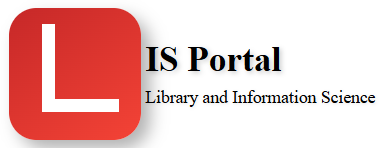Professional ethics refer to the moral principles and values that govern the behavior of individuals and organizations in a professional setting. These principles and values help to define what is right and wrong, and they serve as a guide for professionals as they carry out their work. Some of the core principles of professional ethics include honesty, integrity, objectivity, confidentiality, responsibility, and respect for others.
Professional ethics for library professionals are an important aspect of the library and information science field. Librarians and other library professionals are expected to uphold a high standard of ethical conduct as they carry out their work. Some of the key ethical principles that guide the behavior of library professionals include:
-
Confidentiality: Library professionals are expected to protect the privacy of library users and keep their information confidential. This includes information about what materials they borrow, what searches they conduct, and any other personal information they may provide.
-
Intellectual freedom: Library professionals are committed to promoting and protecting intellectual freedom, which means ensuring that users have access to a wide range of information and ideas, regardless of their political, social, or cultural views.
-
Equity and inclusion: Library professionals are expected to promote and provide access to information for all users, regardless of race, gender, religion, or other personal characteristics. They should also work to create a welcoming and inclusive environment for all patrons.
-
Objectivity: Library professionals are expected to provide impartial and objective information and services, without promoting their personal opinions or biases.
-
Responsibility: Library professionals have a responsibility to ensure that their actions do not harm the public or violate the law. They should also take steps to ensure that the information they provide is accurate and up-to-date.
These ethical principles serve as a guide for library professionals as they carry out their work, and they help to ensure that libraries remain trusted and valuable resources for their communities.
Principles of Professional ethics
-
Honesty: Professionals are expected to be truthful and transparent in their dealings with clients, customers, and other stakeholders.
-
Integrity: Professionals are expected to act in an ethical and responsible manner, adhering to high standards of moral and professional conduct.
-
Objectivity: Professionals are expected to maintain impartiality and avoid conflicts of interest. They should provide accurate and impartial information and services, without promoting their personal opinions or biases.
-
Confidentiality: Professionals are often entrusted with sensitive information and are expected to protect it from unauthorized access and disclosure.
-
Responsibility: Professionals are expected to be accountable for their actions and decisions, and to act in the best interests of their clients, customers, and other stakeholders.
-
Respect for others: Professionals are expected to treat others with dignity and respect, regardless of their race, gender, religion, or other personal characteristics.
-
Professionalism: Professionals are expected to maintain a high standard of excellence in their work and to continuously develop their knowledge and skills.
